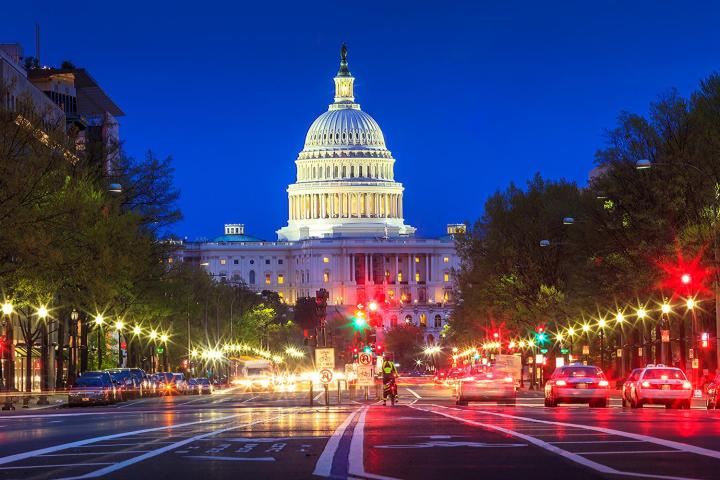
A once-promising NSA reform bill, which just passed in Congress, has lost the backing of privacy advocates after lawmakers took out several provisions to garner bipartisan support.
Critics say that legislators have gutted the USA Freedom Act to the point that it does the opposite of what its early supporters intended. The legislation, which was intended to ban the National Security Agency’s bulk collection of domestic phone records, is said to have expanded the data pool from which the agency can collect data. The most contentious part of the bill is its new definition of “specific selection term,” which outlines who or what the NSA is allowed to monitor. In the previous version of the bill, the specific selection term was defined as information that “uniquely describes a person, entity, or account.” The new version has been expanded to “person, entity, account, address, or device.”
“The new definition is incredibly more expansive than previous definitions … The new version not only adds the undefined words “address” and “device,” but makes the list of potential selection terms open-ended by using the term “such as.” Congress has been clear that it wishes to end bulk collection, but given the government’s history of twisted legal interpretations, this language can’t be relied on to protect our freedoms,” said the Electronic Frontier Foundation in a press release.
The Reform Government Surveillance coalition, led by major tech firms such as Google, Apple, Microsoft, Facebook, and Twitter have joined the chorus of condemnation for the bill, calling it a move “in the wrong direction.”
“The latest draft opens up an unacceptable loophole that could enable the bulk collection of Internet users’ data … While it makes important progress, we cannot support this bill as currently drafted and urge Congress to close this loophole to ensure meaningful reform,” the group said.
The House passed the legislation with a lopsided vote of 303-121. The bill, which was introduced by Sen. Patrick Leahy (D- Vt) and Rep. Sensenbrenner, was opposed by 51 Republicans and 70 Democrats. Sensenbrenner’s involvement has opened the bill to criticism, and has created comparisons with one of his most controversial achievements, the Patriot Act.
“It does not deserve the name ‘USA Freedom Act’ any more than the ‘Patriot Act’ merits its moniker,” said four NSA whistleblowers and a former staff member of the House Intelligence committee. According to The Guardian, NSA whistleblowers Thomas Drake, William Binney, Edward Loomis, J Kirk Wiebe and former congressional staff member Diane Roark said that the changes to the bill have made it “very weak.”
The White House, on the other hand, has applauded the passage of the bill, particularly the “significant reforms” that it has put in place. “The Administration strongly supports House passage of H.R. 3361, the USA Freedom Act. … The Administration applauds and appreciates the strong bipartisan effort that led to the formulation of this bill, which heeds the President’s call on this important issue,” the White House said in a statement.
“The bill ensures our intelligence and law enforcement professionals have the authorities they need to protect the Nation, while further ensuring that individuals’ privacy is appropriately protected when these authorities are employed … Overall, the bill’s significant reforms would provide the public greater confidence in our programs and the checks and balances in the system. The Administration supports swift House passage of the USA Freedom Act, and urges the Senate to follow suit.”
In spite of the White House’s endorsement, the bill’s passage through the Senate is not a done deal. Sen. Leahy has expressed dismay with the House bill and has vowed to bring back the more comprehensive version of the legislation.
“Today’s action in the House continues the bipartisan effort to restore Americans’ civil liberties. But I was disappointed that the legislation passed today does not include some of the meaningful reforms contained in the original USA Freedom Act. I will continue to push for these important reforms when the Senate Judiciary Committee considers the USA Freedom Act next month,” he said.
[Image courtesy of f11photo/Shutterstock]
